Fascism, Imperialism, and Trumpism
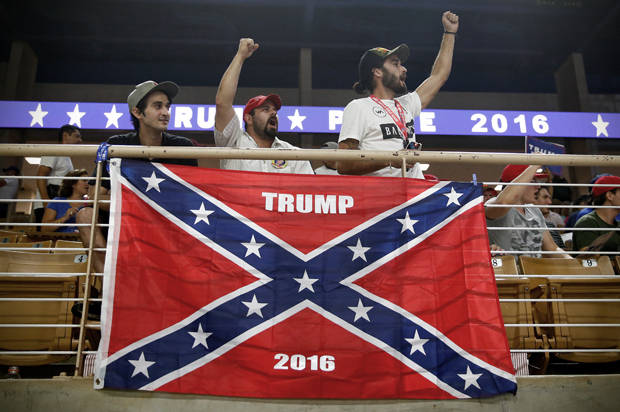 Fascism, of course, always had a lot more in common with classical liberalism than most people realise. Fascism was built around the defence of private capitalism. Far from being the ideologically ultra-statist economic nightmare of right-wing mythology, fascist economics was complex and opportunistic. It sometimes used nationalisation as well as privatisation. Indeed, as Germa Bel has shown, the Nazis did so extensively, to the point where one could call them forerunners of neoliberalism. But there’s no denying that statism was a part of the Nazi economic strategy… but then so did liberalism always use the state as a way to protect and extend capitalist interests. Indeed, fascism – being a product of twentieth century capitalist imperialism – is the product of an era when the interests of the state fuse, to a large extent, with the interests of blocs of domestic capital, thus making state-run imperialism essentially a form of public-financed ‘primitive accumulation’ on behalf of national capitalists. Many big capitalists – generally from heavy industry, for material reasons, as Daniel Guerin pointed out – understood this and sympathised with and/or subsidised fascist movements. But more generally, fascism emerges from the liberal capitalist epoch, and shows the family resemblances.
Fascism, of course, always had a lot more in common with classical liberalism than most people realise. Fascism was built around the defence of private capitalism. Far from being the ideologically ultra-statist economic nightmare of right-wing mythology, fascist economics was complex and opportunistic. It sometimes used nationalisation as well as privatisation. Indeed, as Germa Bel has shown, the Nazis did so extensively, to the point where one could call them forerunners of neoliberalism. But there’s no denying that statism was a part of the Nazi economic strategy… but then so did liberalism always use the state as a way to protect and extend capitalist interests. Indeed, fascism – being a product of twentieth century capitalist imperialism – is the product of an era when the interests of the state fuse, to a large extent, with the interests of blocs of domestic capital, thus making state-run imperialism essentially a form of public-financed ‘primitive accumulation’ on behalf of national capitalists. Many big capitalists – generally from heavy industry, for material reasons, as Daniel Guerin pointed out – understood this and sympathised with and/or subsidised fascist movements. But more generally, fascism emerges from the liberal capitalist epoch, and shows the family resemblances.
In this connection, a reader recently reminded me of the work of Ishay Landa. I need to re-read, but I seem to recall that Landa makes a strong case, in The Apprentice’s Sorcerer (2012), that fascism emerges from the Western liberal – i.e. capitalist – tradition and is in continuity with it, at least as much as rupture.
This is a good review of Landa’s book which brings out the main points. As the reviewer says
Landa begins by identifying as a historical precondition for fascism “the inherent tension between the political dimension of the liberal order and its economic one” (21). That is, the European bourgeoisie of the eighteenth century demanded representative governments in order to free the markets from feudal protectionism, but they were followed later by the lower classes who, in turn, demanded access to the franchise themselves in order to protect their own interests, pitting the original economic liberalism against emerging political liberalism. Where John Locke defended democracy as shoring up capitalism, Vilfredo Pareto, whose works inspired Benito Mussolini, lashed out at democracy “entirely on the premises of economic liberalism,” such as “its restriction of the ‘free movement of capital,’ and its encroachment on private property via progressive taxation” (53).” Similar strains of thought were current among German thinkers of the interwar period, most notably Oswald Spengler, and Adolf Hitler’s animus against German democracy was based upon the belief that “the [Weimar] Republic signifie[d] the unlawful and pernicious political interference in the economy”…
An interesting irony that Locke, who provides the basis for Rothbard’s ethics and metaphysics of property, is in favour of democracy (broadly), instead of resolutely opposed to it like the Austrians. And it’s also telling that Hitler’s fundamental objections to Weimar democracy were couched in terms that would be congenial to Hayek et al (via Carl Schmitt, etc).…

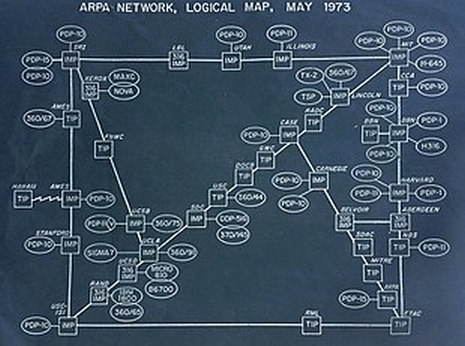 Last time in ‘Summing Up’, we talked about how the right-libertarian “views the horror of socially-arranged altruism as worse than the horror of letting people die for want of medical care” because “libertarianism is against individual freedom for all because it depends upon collective liberation”. This, of course, raises another issue. Where does one draw the line? If socialised medicine is totalitarianism for doctors, why is the tacit threat of destitution which lies behind the wage labour system not considered equally bad? The answer to this question is the same brute and vulgar answer we gave already. It comes down to which side you’re on… which, most of the time, in an instance of capitalism creating a self-fulfilling prophecy of the selfish and cynical actor of its own ideological account of human nature, comes down to which class you’re in, or which class your interests are aligned with.
Last time in ‘Summing Up’, we talked about how the right-libertarian “views the horror of socially-arranged altruism as worse than the horror of letting people die for want of medical care” because “libertarianism is against individual freedom for all because it depends upon collective liberation”. This, of course, raises another issue. Where does one draw the line? If socialised medicine is totalitarianism for doctors, why is the tacit threat of destitution which lies behind the wage labour system not considered equally bad? The answer to this question is the same brute and vulgar answer we gave already. It comes down to which side you’re on… which, most of the time, in an instance of capitalism creating a self-fulfilling prophecy of the selfish and cynical actor of its own ideological account of human nature, comes down to which class you’re in, or which class your interests are aligned with. 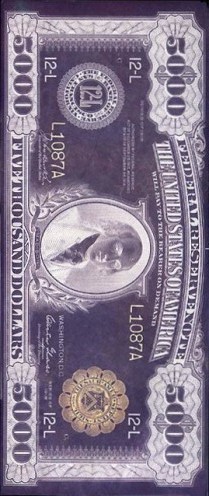 In an article entitled ‘Democracy Isn’t Freedom’, Ron Paul wrote:
In an article entitled ‘Democracy Isn’t Freedom’, Ron Paul wrote: Paleolibertarianism was a consciously devised mutation of Austrian-influenced libertarianism, concocted by the late-20th century’s most prominent devotee of Austrian dogma, Murray Rothbard (and his fawning cohorts).
Paleolibertarianism was a consciously devised mutation of Austrian-influenced libertarianism, concocted by the late-20th century’s most prominent devotee of Austrian dogma, Murray Rothbard (and his fawning cohorts). 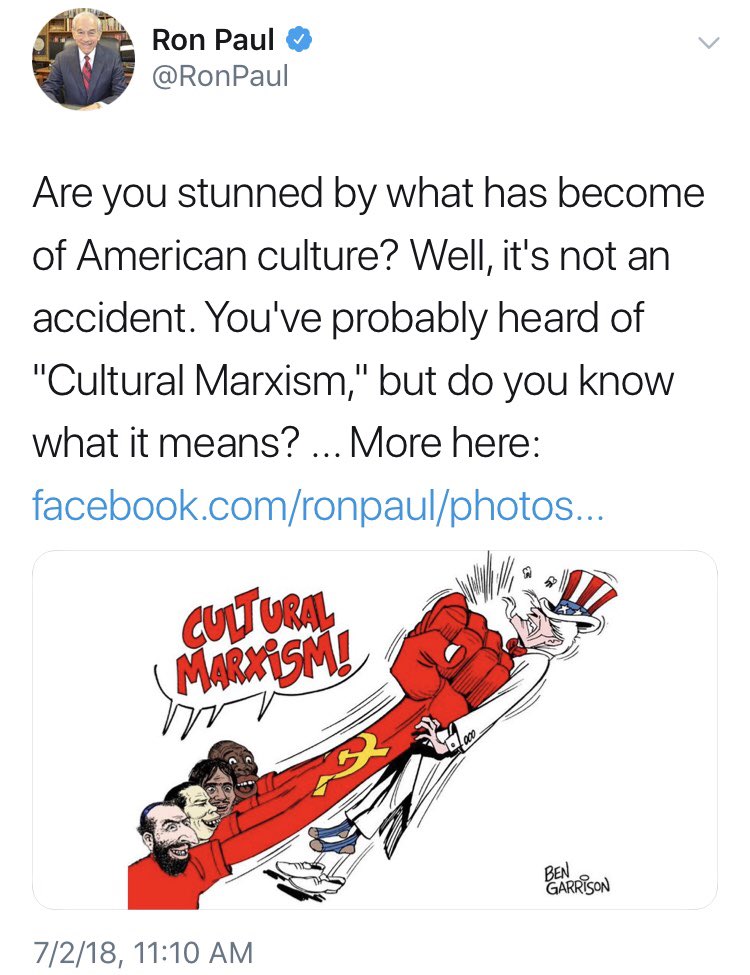
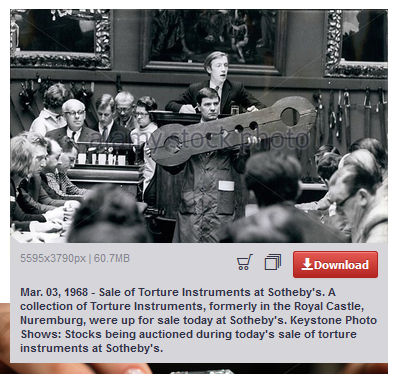 The glue which gums Rothbard’s libertarianism, with its supposed veneration of personal liberty, to the politics of tyranny (white supremacy, anti-semitism, etc) is the baked-in project of conservatism, according to Corey Robin: the defence of privilege and hierarchy which is, or feels itself to be, threatened.
The glue which gums Rothbard’s libertarianism, with its supposed veneration of personal liberty, to the politics of tyranny (white supremacy, anti-semitism, etc) is the baked-in project of conservatism, according to Corey Robin: the defence of privilege and hierarchy which is, or feels itself to be, threatened. 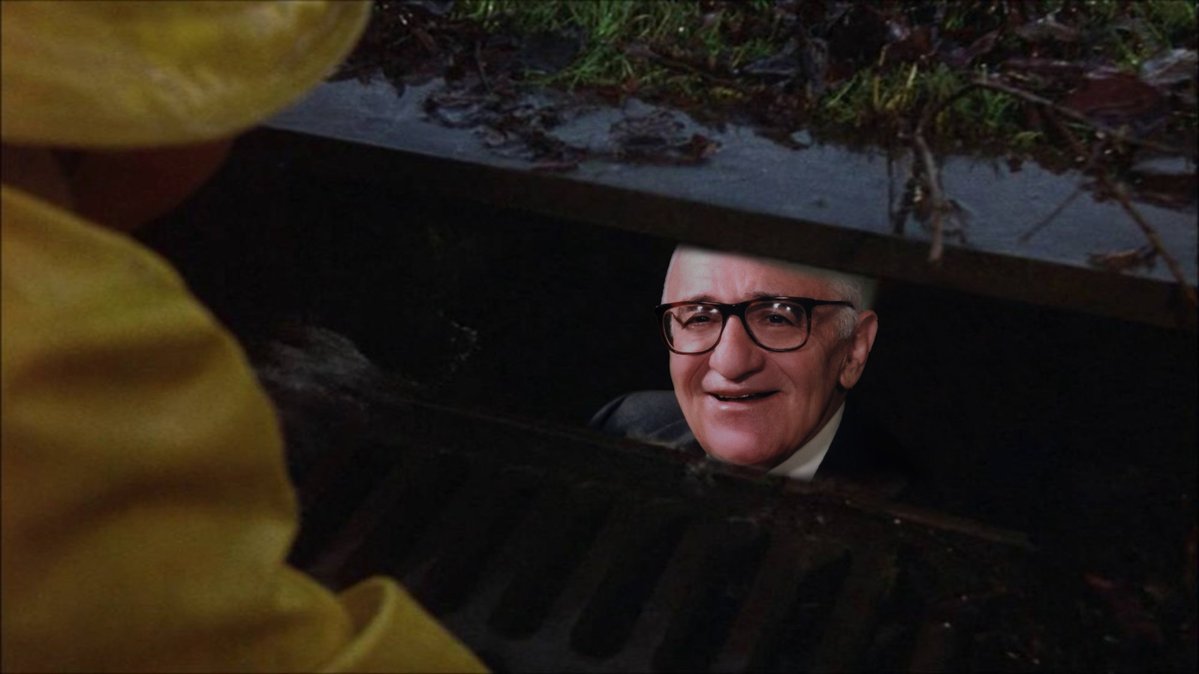
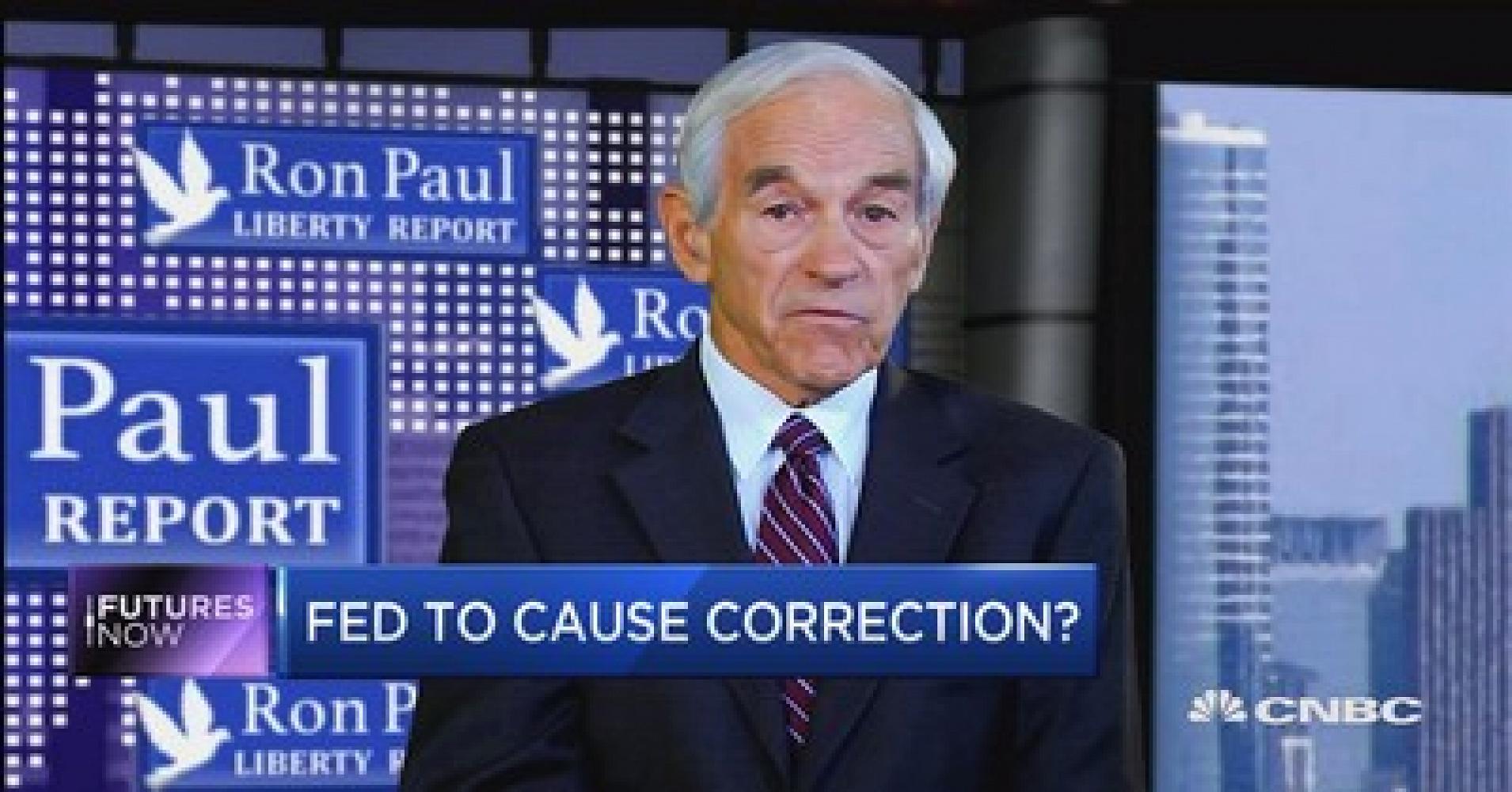 In my opinion, any account of the rise of the alt-right, especially one which emphasizes the role of libertarianism, and thus the distal causal role of the Austrian School of economics, must begin with Ron Paul.
In my opinion, any account of the rise of the alt-right, especially one which emphasizes the role of libertarianism, and thus the distal causal role of the Austrian School of economics, must begin with Ron Paul. In The Reactionary Mind, Corey Robin claimed – drawing on Naomi Klein and Greg Grandin – that Hayek “admired Pinochet’s Chile so much that he decided to hold a meeting of his Mont Pelerin Society in Viña del Mar”, the seaside resort in Chile where General Pinochet’s CIA-assisted military coup against the democratically elected left-wing government of Salvador Allende was planned. This claim was denounced on Twitter as “made up” by none other than ‘@FriedrichHayek’ himself! (Probably just a fan rather than the man himself resurrected and tweeting… as usual, Hayek’s admirers simply deny his complicity with the Chilean junta, when they can’t get away with just neglecting to mention it. As Robin discovered, they have lots of excuses – he was an old man at the time, etc – all of which turn out to be so much bad faith when you look at them.) Checking, Robin discovered that it is more accurate to say that Hayek attended the meeting where the decision to hold the MPS’s 1981 conference in Viña del Mar was made and, at least, did not oppose it. His position in the Society was still prestigious enough that, at the very least, an objection from him would carried a lot of weight. No such objection seems to have been forthcoming. And indeed, we’re being scrupulously fair to the point of charity by even being this circumspect. Nothing in Hayek’s behaviour suggests he would’ve been likely to object.
In The Reactionary Mind, Corey Robin claimed – drawing on Naomi Klein and Greg Grandin – that Hayek “admired Pinochet’s Chile so much that he decided to hold a meeting of his Mont Pelerin Society in Viña del Mar”, the seaside resort in Chile where General Pinochet’s CIA-assisted military coup against the democratically elected left-wing government of Salvador Allende was planned. This claim was denounced on Twitter as “made up” by none other than ‘@FriedrichHayek’ himself! (Probably just a fan rather than the man himself resurrected and tweeting… as usual, Hayek’s admirers simply deny his complicity with the Chilean junta, when they can’t get away with just neglecting to mention it. As Robin discovered, they have lots of excuses – he was an old man at the time, etc – all of which turn out to be so much bad faith when you look at them.) Checking, Robin discovered that it is more accurate to say that Hayek attended the meeting where the decision to hold the MPS’s 1981 conference in Viña del Mar was made and, at least, did not oppose it. His position in the Society was still prestigious enough that, at the very least, an objection from him would carried a lot of weight. No such objection seems to have been forthcoming. And indeed, we’re being scrupulously fair to the point of charity by even being this circumspect. Nothing in Hayek’s behaviour suggests he would’ve been likely to object.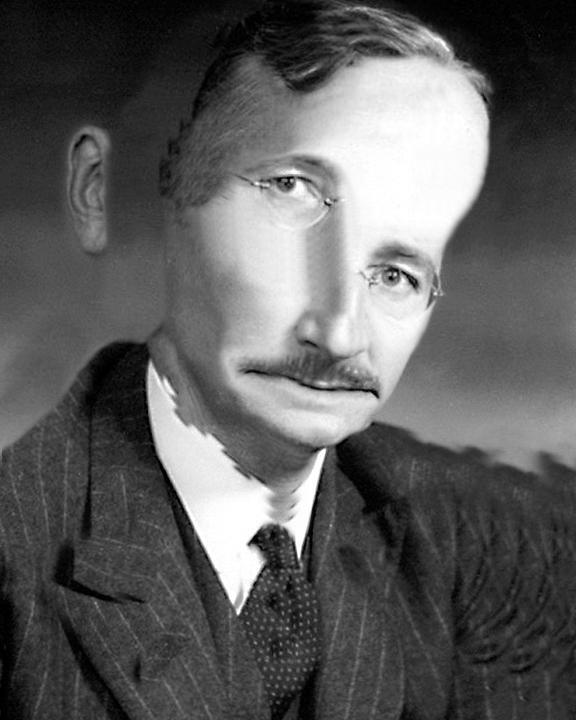 The early Austrian School was actually subject to a split. It stemmed from the first wave of the followers of its founder Carl Menger. Mengerians Friedrich von Wieser and Eugen von Philippovich were both a bit like Fabian socialists in their outlooks. Wieser, for instance, seems to have believed that marginal utility (the radically subjective basis of modern mainstream economics) provided a theoretical foundation for progressive taxation. But Wieser’s brother-in-law and fellow teacher, Eugen von Böhm-Bawerk, was of the classical liberal tradition. Böhm-Bawerk was a strident anti-Marxist who developed many of his own theories – which became foundational to the subsequent Austrian School – in the course of his criticisms of Marx. Böhm-Bawerk is still routinely credited by some with having demolished Marx… which he accomplished by systematically misreading, misunderstanding, and misrepresenting him.
The early Austrian School was actually subject to a split. It stemmed from the first wave of the followers of its founder Carl Menger. Mengerians Friedrich von Wieser and Eugen von Philippovich were both a bit like Fabian socialists in their outlooks. Wieser, for instance, seems to have believed that marginal utility (the radically subjective basis of modern mainstream economics) provided a theoretical foundation for progressive taxation. But Wieser’s brother-in-law and fellow teacher, Eugen von Böhm-Bawerk, was of the classical liberal tradition. Böhm-Bawerk was a strident anti-Marxist who developed many of his own theories – which became foundational to the subsequent Austrian School – in the course of his criticisms of Marx. Böhm-Bawerk is still routinely credited by some with having demolished Marx… which he accomplished by systematically misreading, misunderstanding, and misrepresenting him.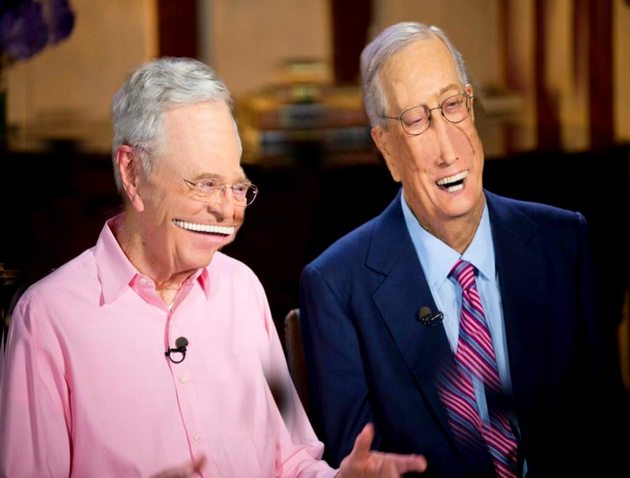 As some of you will be aware, especially those of you who’ve been following my whining about it on Twitter, I’ve recently been finishing up something I’ve been writing about the Austrian School of economics (y’know, Mises, Hayek, Rothbard, right-libertarianism, etc). It’s my side of a collaboration with Phil for his next book. It’s taken a long time (my fault) but I just finished. One of the reasons it took so long was because I kept falling down rabbit holes, so to speak. The good thing about that is that it has left me with excess material I can write up. And here’s the first bit.
As some of you will be aware, especially those of you who’ve been following my whining about it on Twitter, I’ve recently been finishing up something I’ve been writing about the Austrian School of economics (y’know, Mises, Hayek, Rothbard, right-libertarianism, etc). It’s my side of a collaboration with Phil for his next book. It’s taken a long time (my fault) but I just finished. One of the reasons it took so long was because I kept falling down rabbit holes, so to speak. The good thing about that is that it has left me with excess material I can write up. And here’s the first bit.